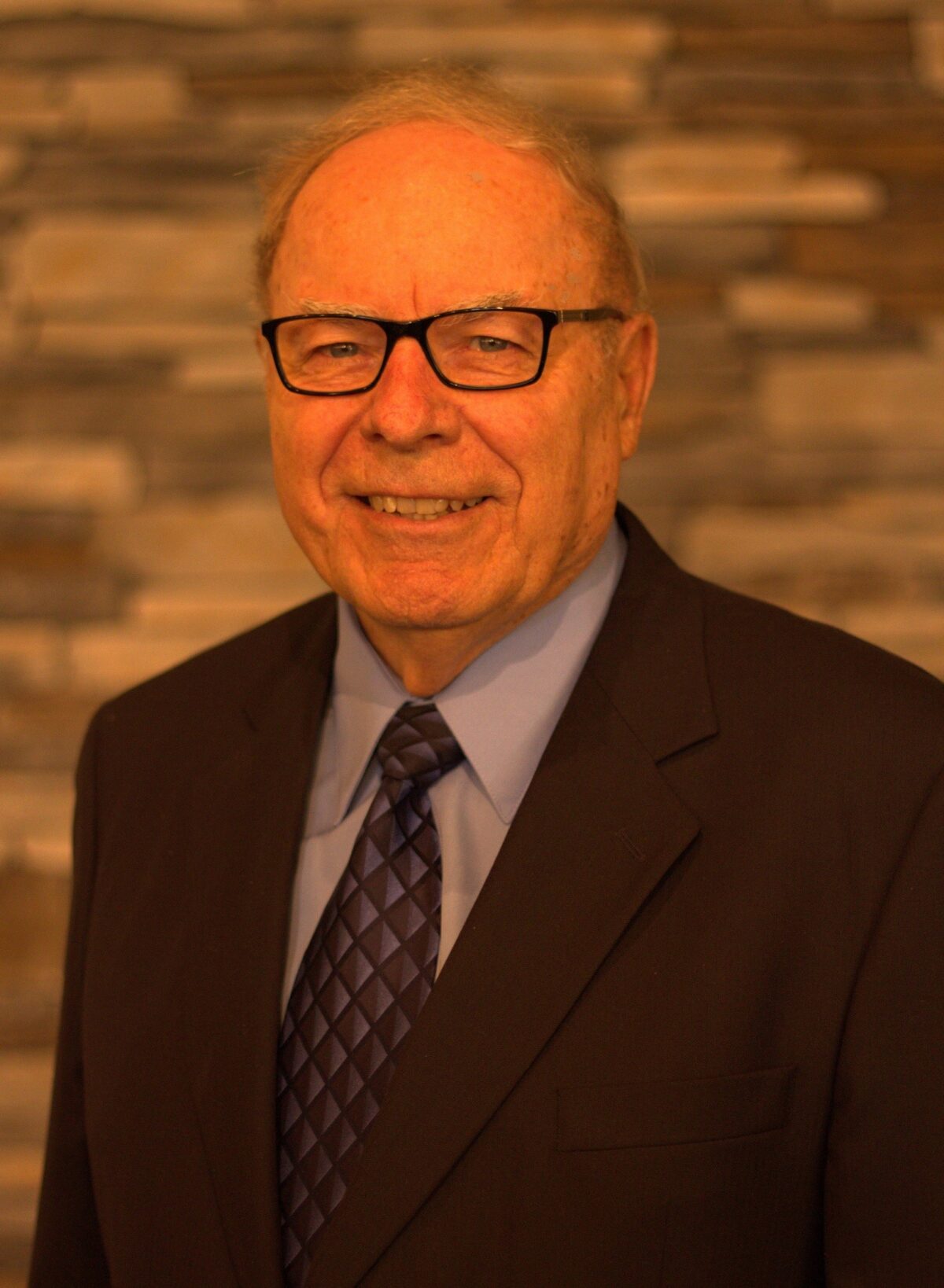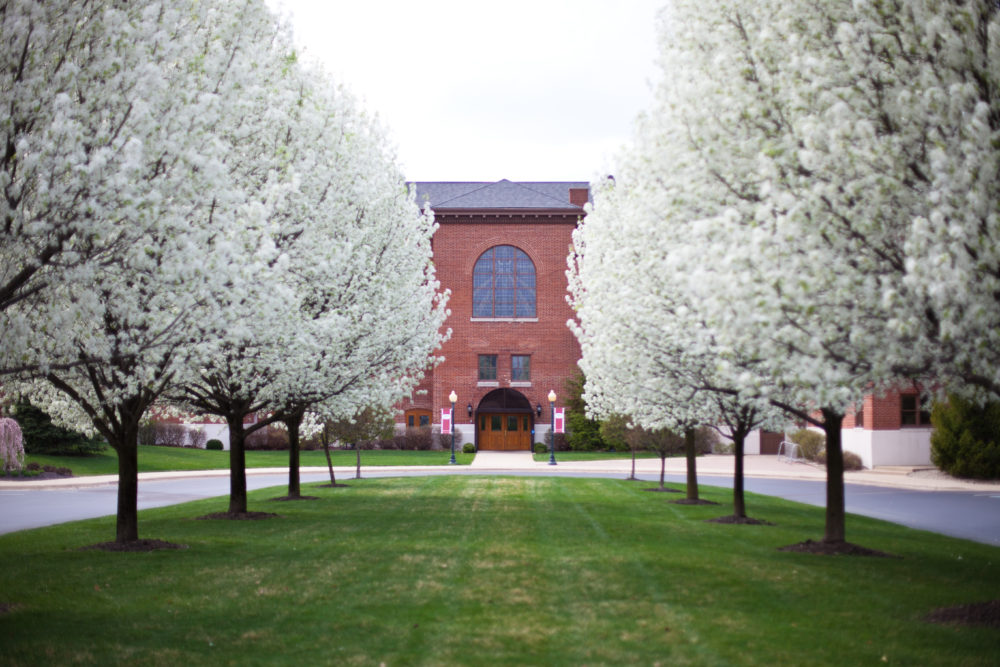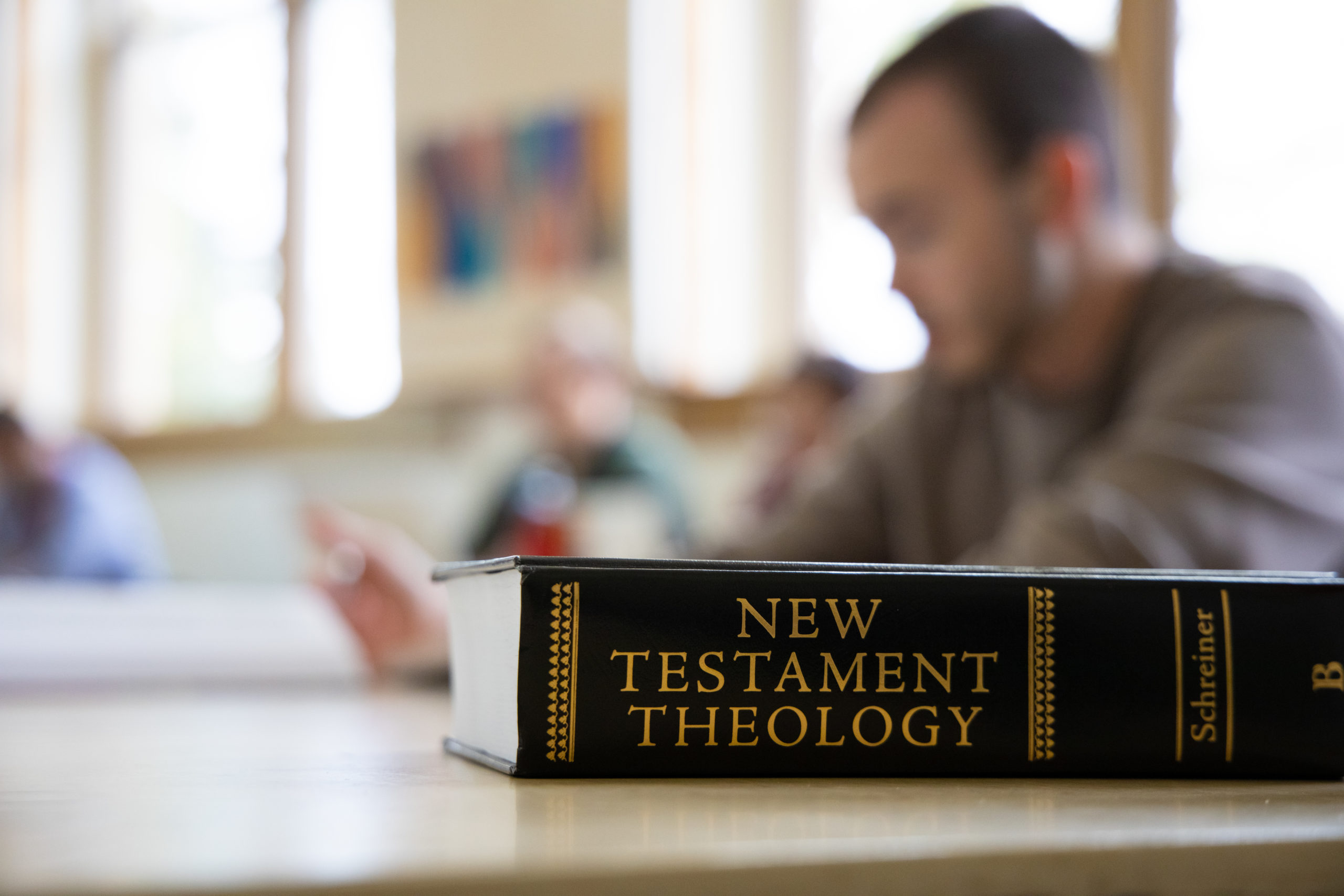March 25, 2024
Seminary Training, Inductive Study, and Finding the Answer to ‘Who is God?’
Written By Grace Theological Seminary
Tagged With Preaching & Pastoring Alumni Stories Intercultural Studies

A child was coloring one day when his mother asked him what he was drawing.
“God,” was the simple reply.
“No one knows what God looks like,” his mother stated.
The young boy responded confidently, “They will when I’m done!”
Renowned theologian and pastor, Dr. Alva F. Goossen, tackled this weighty topic when writing his book, “Who is God?: An Inductive Study of the Identity of God. While Goossen was not attempting to give people a literal picture of God, he does present a treatise on being assured of God’s existence.
Who is God? It’s a big question that has been asked (and answered) down through the centuries, but Goossen’s academic credentials, intercultural ministry, and pastoral experience combined to give him the tools to offer a response worth reading. It was a question he had been answering to varying degrees his whole life.
His time at Grace Theological Seminary consisted of earning his Master’s of Divinity degree. The training he received would serve as a foundation for years of inductive study of the Bible, pastoral leadership, and eventually publishing a book. Read on to learn more of his story.
When/how did you know you were called to a vocational ministry?
Shortly after I trusted in Christ as my Savior at about age 9, the Lord made me aware of His will for me to pursue a career in ministry. From a small child, I was very sensitive to the Gospel and to our responsibility to tell others. When I was young, I heard a missionary to China report with very primitive slides, telling of the need. My mother told me later she could hardly get me to go to sleep, because I was so motivated that we had to go to China to tell them the Gospel.
How did you first hear about Grace and decide to attend here?
My brother graduated from Grace Theological Seminary. He informed me about the school. Since I was not as good of a student as my brother had been, I had ruled out attending Grace for myself. However, one of the professors stopped me in the hall one day and told me he thought I should attend seminary. So just to make sure it would not work, I applied to the seminary and was very surprised when they invited me to come to school.
Do you have any favorite/distinct memories from your time at Grace?
The first memory that comes to mind is the Greek entrance exam. I almost flunked Greek class in Bible college because I had never learned good study habits. So when they informed me there was a non-credit refresher course to take if I did not pass the exam, I decided to do all I could to pass the test. I studied as much as I could during the summer. And wonder-of-wonders, I passed the test. So even if a prospective student has not been a particularly good student in college, if he applies himself well, he can make the grade.
Another interesting memory is preaching a sermon with all the professors sitting in the front row. After the chapel service was dismissed, Dr. John Whitcomb indicated that he wanted to speak with me. He steered me into an empty room as I wondered if I was about to be reprimanded. Rather, he wanted to tell me that a particular point I made in the message was something he had never thought about. I was left speechless by his encouragement that he had learned something from me that day.

You have participated in intercultural ministry. How did you end up overseas and how did it compare to ministry in the U.S.?
Having a clear indication from the Lord as to the scope of the service He desired, I prayed a lot for missionaries that I knew. My first inclination was to go to South America, but through some reading of the prophet Isaiah, I became redirected toward Germany.
The German and American cultures are very different. While the U.S. is a melting pot of all kinds of beliefs, Germany, particularly Bavaria, tended to have a thoroughly starched religion established by agreements with the Vatican from the previous 400 years. Being an American immediately placed the stigma of “cult” on us, because they only knew of Mormons and Jehovah’s Witnesses. It took years to gain any semblance of confidence in them to where they would listen to a witness.
Then there was the matter of indoctrination in the fallacies of the Roman Catholic Church. In their opinion, they were all Christian, but they knew nothing of a personal relationship with Christ. So the first step was to convince them that they were indeed sinners. Their definition of a heathen was a person who lived in the jungle and wore no clothes.
Of course, the culture in any country is sinful. So the truth of intercultural ministry is that the same gospel that works for an American also works for a German.
You recently published “Who Is God?: An Inductive Study of the Identity of God.” The identity of God is a big topic. How did you decide to tackle this subject?
The prophet Elijah had been a hero in my mind from my youth, because of his stand for the Lord. A seed thought was planted in my mind in homiletics class while I was a student at Grace Theological Seminary in the early 60s. That thought slowly grew through the years until I prepared an inductive study and preached a series of sermons.
At some point in the mid-1990s, I became convinced that I needed to write down some of my thoughts and discoveries. Little by little, and finally in a more concentrated way I realized that I needed to finish the printed project for the public. As I wrote, I always had skeptical young adults in mind, to help them realize the important choices they needed to make.
You trace historical examples from ancient Israel to the founding of the United States to the collapse of the Soviet Union. Where did your fascination with history originate?
My paternal grandparents were both born in South Russia (known today as Ukraine). As a child from age 8-10, my grandmother lived with us, and I had many conversations with her about the family growing up in Ukraine and making the decision to emigrate to the United States. As I entered grammar school, the subjects of history and geography were my favorite subjects. For my enjoyment, I often looked at maps and old geography books my father had studied when he was in school.
With the study of US history, I learned that our rulers were sinners just like the rest of us. Realizing that our government was less than ideal and certainly not God-fearing drove me to the scriptures to study the kind of government and history that God desired for mankind. These were many of my teen-age thoughts and activities.
Why do you believe a knowledge of history is important for our present lives?
We need to study the decisions and consequences of history to avoid repeating all the mistakes of the past. That fact is the problem with the leaders of the countries of the world up to this present time. They do not study the mistakes of history.
In my library, I have a book called “July ‘14″ by Emil Ludwig, a German author, who documented all the lies that flew back and forth in Europe that precipitated World War I. It is interesting that the dedication page states, “To Our Sons–In Warning.” Through all the wars and conflicts of the 20th century, the same kind of coverup and deception has happened and is still being done. Politicians do not take warning nor do most of the population of voters.
No matter the country or culture, the need for God to guide His people will never waver. In the Old Testament, prophets were sent as mouthpieces. Not only is declaring the truth of God’s Word still necessary, but it reminds people of the majestic identity of God, which goes far beyond intellectual knowledge.
Are you sensing a call to ministry from God and trying to figure out your next steps? Grace offers several concentrations, delivered by various pathways, that will prepare you for ministry. From Pastoral Studies and Counseling to Intercultural Studies (and everything in between), Grace has a mission to equip you for ministry by deepening and broadening your pastoral tool belt.
Share
Tagged With Preaching & Pastoring Alumni Stories Intercultural Studies


